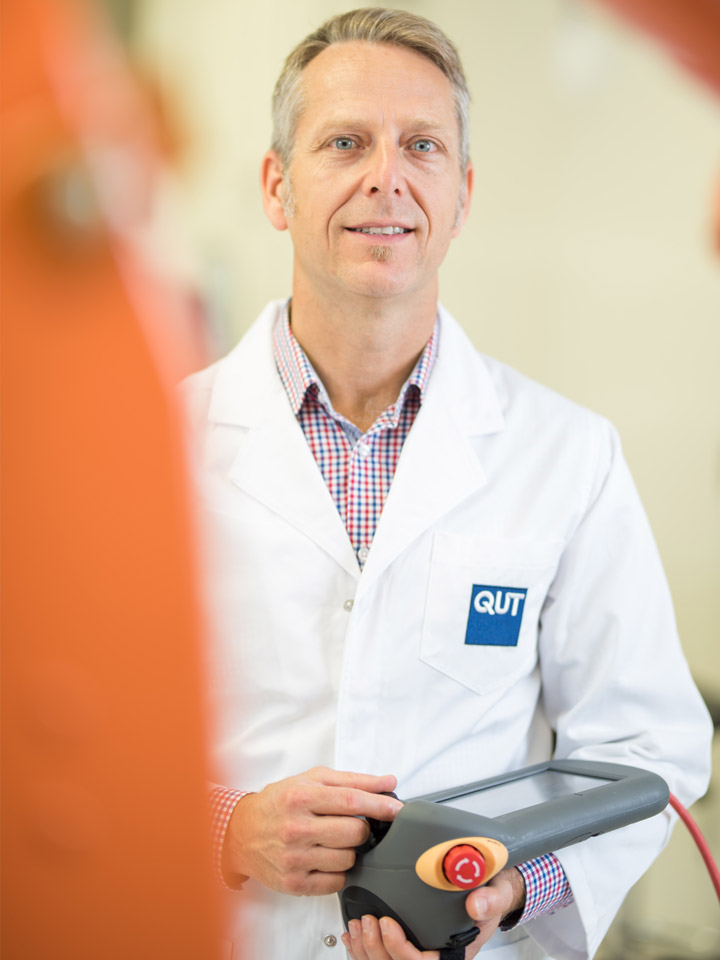
Peter Pivonka is pleased to announce that the BSRG team recently received $80,000 funding from the Roland Bishop Bequest to support the development of a state-of-the-art ex-vivo biomechanical “Robotic Musculoskeletal Simulator”. This robotic system will mimic dynamic muscle movement, as well as motion within joints to accurately reproduce the conditions experienced by the human body during the activities of daily living. The first prototype robot will simulate the shoulder joint and in future, spinal joints will be simulated using a modular approach. This robotic system makes it possible to accurately estimate joint forces and effects of muscles on joint loads and, in so doing, allows more precise testing of implants and surgical procedures to achieve the best outcomes for patients.
Real world effect
Research conducted with the Robotic Musculoskeletal Simulator will lead to better design and testing of medical implants, novel surgical procedures and physiotherapy treatments. New and improved joint implant designs with advanced functionality have the potential for broad community benefit. The ultimate goal is to improve lives through facilitating greater understanding of the effect of various surgical procedures and implants, to enable better decision making by surgeons in Australia and internationally. The benefits of the Robotic Musculoskeletal Simulator will be long-lasting and the QUT-led team will be pleased to share regular updates on the wonderful impact of Mr Bishop’s legacy.